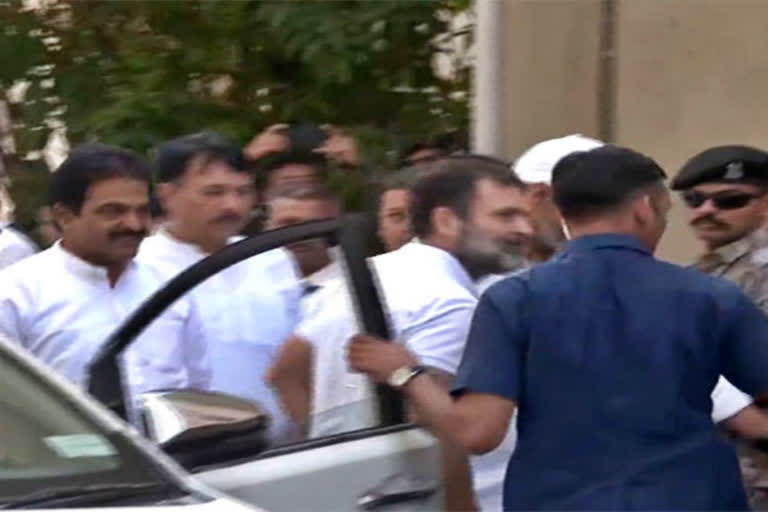Hyderabad: On Wednesday, March 22, 2023, the Surat district court in Gujarat, India, held Rahul Gandhi, a senior leader of the Indian National Congress, guilty in a criminal defamation case filed against him by Bharatiya Janata Party (BJP) MLA Purnesh Modi. The court sentenced him to two years in prison and a fine of Rs 50,000. The verdict has generated widespread discussion about the implications of the conviction and its possible political fallout.
Legal experts have noted that Gandhi's conviction puts him at risk of being disqualified from Parliament under the Representation of the People Act, 1951. Section 8(3) of the Act states that any member of parliament who is convicted of an offense and sentenced to imprisonment for a term of two years or more shall be disqualified from holding office. If Gandhi is disqualified, his Wayanad constituency will become vacant, and there will be a need for a by-election.
However, Rahul Gandhi's legal team has said that they plan to challenge the verdict in a higher court. They will appeal for a suspension of the sentence and a freeze on the order, and if this is not granted, they will move the case to the Supreme Court. If the conviction is not set aside by any higher court, Gandhi will also be barred from contesting elections for the next eight years.
Legal experts have noted that a two-year sentence in a criminal defamation case under Section 499 of the Indian Penal Code, under which Mr Gandhi was convicted, is extremely rare. The case relates to a speech Rahul Gandhi made during a campaign rally in Kolar, Karnataka, on April 13, 2019, ahead of the Lok Sabha elections. In the speech, he used political satire to draw similarities between the surnames of Nirav Modi, Lalit Modi, and Prime Minister Narendra Modi. He said, "Nirav Modi, Lalit Modi, Narendra Modi... how come they all have Modi as a common surname? How come all thieves have Modi as a common surname?"
The case was filed against Rahul Gandhi by BJP MLA Purnesh Modi, who alleged that the remarks were defamatory and had damaged the reputation of the Modi family. Gandhi denied the charges and argued that he was exercising his right to freedom of speech and expression. However, the court found him guilty of criminal defamation and sentenced him accordingly.
The verdict has sparked a political debate in India, with leaders from both the BJP and Congress commenting on the case. Some have accused the BJP of using the legal system to silence its critics, while others have argued that Gandhi's comments were irresponsible and defamatory. The verdict is likely to have significant implications for Rahul Gandhi's political career and the broader political landscape in India.



